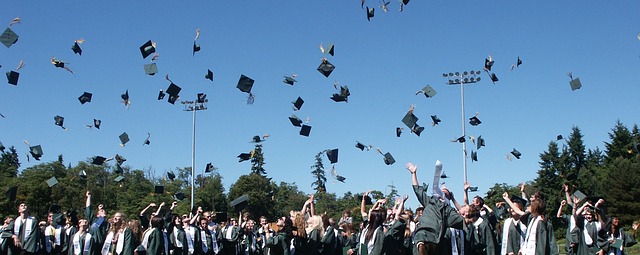Are university graduates ready for disruption?

*Press release produced and distributed by our partners at the Media Center for Education Research Australia (MCERA)*
Australian higher education providers teach graduates valuable qualities as citizens and workers, but may need to focus on new ones to prepare them for a world of technological and geopolitical upheaval, says new research published in Higher Education Research & Development.
The authors of the study, Professor Beverley Oliver and Dr Trina Jorre De St Jorre, highlight the graduate attributes that need greater emphasis in an era of fake news, populist politics, cyber attacks, digital disruption, automation, and climate change.
These include digital safety, creative and reflective thinking, understanding history and international relations, the ability to judge the trustworthiness of information, and application of problem-solving skills to create innovative and sustainable business models.
In 2015, apart from subject knowledge, the attributes that 41 Australian universities most commonly claimed to pass onto students were global citizenship (100%), communication skills (95%), critical thinking 93%, teamwork (90%), problem-solving (85%), information literacy (85%), and independence (83%).
Thirty-two non-university providers mentioned mostly the same attributes, but mentioned all of them less, and were less inclined in general to specify the outcomes that graduates could expect to achieve.
Professor Oliver and Dr Jorre De St Jorre compared these claims to the measures put in place to assure them, and to student and employer perceptions. They drew these from nation-wide results from the Student Experience Survey and the Employer Satisfaction Survey.
Out of the areas they focus on, higher education providers performed well across most measures, but were somewhat less effective at improving students’ ability to solve complex problems, collaborate, or communicate verbally, or their work-related skills.
At least 70% of 178,459 students surveyed across 95 providers in 2016 agreed that their course had developed their critical and analytical thinking (70%), confidence to learn independently (73%), and knowledge of the area they were studying (78%).
But less than 70% thought it developed their ability to solve complex problems (62%), their ability to work with others (65%), or work-related skills (63%). Only 56% thought their course developed their spoken communication skills.
The 3,000 employers surveyed in 2016 reported high satisfaction with graduates in general, particularly their technical skills—like using technology effectively—and foundation skills, such as numeracy, communication, and the ability to learn. They were less satisfied with employability skills, like demonstrating initiative or leadership, or with teamwork skills, though still rated these highly.
With this in mind, Professor Oliver believes it is important to teach graduates an entrepreneurial mentality. Even where it does not lead them to starting their own enterprises, she says, it will improve their understanding of the businesses they work for, and what is needed to sustain them in an era of technological, political and environmental disruption.
In her view, Australian universities are leaders in adapting to change. Nonetheless, she says, there are areas that will require increasing attention in the coming years – particularly in the face of accelerating flows of news and information.
“The education that we’re providing today needs to prepare people to navigate that without panicking, and without feeling overwhelmed by what’s happening around them,” she said. The solution, in her view, lies neither in STEM nor the humanities alone, but an integrated approach that applies all knowledge available to respond effectively to change.
Dr Jorre De St Jorre agrees. She says that higher education providers are doing a good job, but that in “a fast-moving world” where the changes are “not always positive”, providers must constantly adapt if they’re to prepare students for the future.
“The grand challenge of education is to figure out what the successful learner will need, and ensure it is evidenced and assessed in multiple ways and points in the journey. In our turbulent world, the challenge has never been grander, or the urgency as great.”

 China
China
